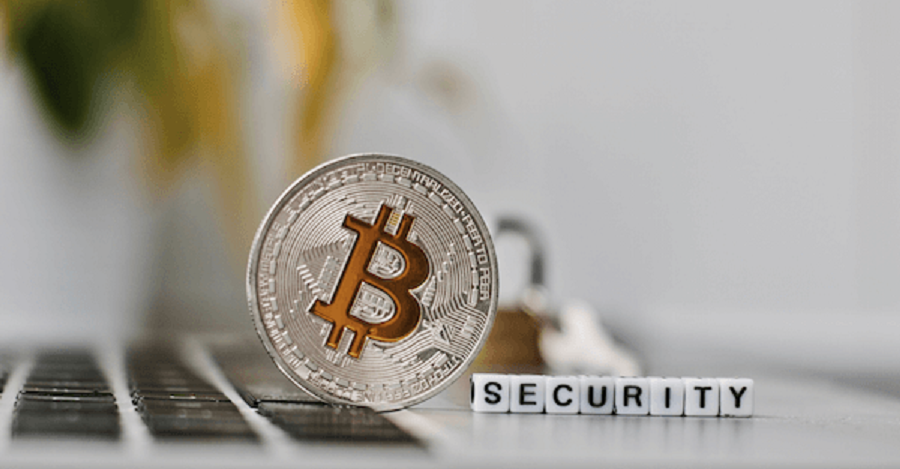Is Selling Bitcoin Inevitable? Here Are It’s Do’s and Don’ts

As an increasing number of people are gaining interest in Bitcoins and cryptocurrencies, there are several misconceptions about the buying and selling curves.
The crypto market’s crash has worsened as the wave of crackdown measures by China continues to shake the investors sentiment, plummeting losses over $1.3 trillion since the market peak on May 12. This was the result of Elon Musk announcing that Tesla would not invest or sell Bitcoins because of the heavy environmental drawbacks it costs. The statement has led several investors to sell Bitcoin before they incur a heavy loss. If you’re an investor that wants to sell your crypto coins, it is necessary to do it right.
In this blog, we’ll cover the reasons for the decline of Bitcoin’s value, its future scope, and the 3 biggest Dos and Don’ts while selling Bitcoin.
Why Are People Rushing to Sell Bitcoin?
China’s constricting actions towards Bitcoin are inevitable since the strongest cryptocurrency is under intensifying scrutiny for its increasing carbon footprint. The Chinese Vice Premier Liu He has called for a “severe” crackdown and punishment for “illegal securities activities,”.
These include cryptocurrency mining and trading in order to stem risks and ensure financial stability. The announcement caused cryptocurrency prices to tumble steeply in double-digits over the last weekend with masses rushing to sell bitcoin while prompting various cryptocurrency miners and exchanges to bring their operations to a halt in China.
The order has reiterated Beijing’s age-old anti-cryptocurrency positioning but risks causing damage to global cryptocurrency mining. Chinese miners constitute 75% of the world’s Bitcoin hash rate, which is the cumulative computational power required to mine and process crypto transactions. This is owed to China’s abundance in specialized hardware and cheap electricity, as per the new research findings published by Nature Communications.
The Bitcoin cost of a Tesla Model-3 emitted approximately 400 metric tons of carbon dioxide, as compared to the 8.85 metric tons required to manufacture and use the car during its lifetime. When Elon Musk canceled the policy, Model-3’s Bitcoin carbon footprint had increased to over 500 metric tons, raising red flags regarding the alarmingly rapid use of fossil fuels for Bitcoin mining and crypto transactions.
The Bitcoin network required a huge amount of energy to operate. At present, it utilizes as much energy as the Netherlands to perform its daily operations.
Is The Future of Bitcoin Uncertain?
Regulatory concerns have always been at the forefront of several governments’ watchlists including the US and India. Hence, it is nothing the nascent cryptocurrency market hasn’t seen before. Despite skyrocketing over 10 folds in 2017, the cumulative worth of the global cryptocurrency index has crashed more than 80% in just a few months with countries like South Korea cracking down on the formerly prospering initial coin offerings.
It was during the pandemic when inflationary concerns and increased institutional adoption soared the market to new peaks again in late 2020. The cryptocurrency market is on an ongoing incline of about 50% as compared to its early peak in 2018, but the future is still very uncertain given the current scenario. Some crypto experts think that the market has aged enough to recover these losses, but others warn investors against the possibility of a steeper correction.
Do’s and Don’ts of Selling Bitcoins Safely
The news and ecological concern has caused the prices of Bitcoin to plummet, and the coin holders are either taking a risk by holding or want to sell immediately. If you’re an investor who wants to sell, here are three important factors to be mindful of.
Choosing an Exchange to Send Bitcoins
DO: Pick a high-volume and high-security exchange.
A high-volume and high-security exchange will give you more competitive rates and additional buyers for the Bitcoin that you want to sell while keeping your transactions highly secure.
DON’T: Choose an exchange with high-fees or a forged track record.
There are several exchanges to sell cryptocurrency globally, but it’s important to pay attention to red flags while picking your platform. Picking exchanges with high fees will earn you less than optimal profits on the Bitcoin sale. Also, beware of exchanges that are flashy or provide too-good-to-be-true offers and have a suspiciously amazing track record that makes you feel uneasy.
Sending Bitcoins to An Exchange
DO: Send Bitcoins Securely
Upon creating an account at an exchange, take stock of the security features and risks that the source of funds and the receiving address possess. Make sure to double-check very carefully the addresses involved before sending Bitcoins. Better yet, scan the QR code of the exchange’s deposit account. You can refer to expert platforms for more guidance.
DON’T: Share your details frivolously with anyone.
It may be tempting to take the help of other people to complete your Bitcoin sale transactions easily. However, just like one is not supposed to give out their credit card details or your passwords to others, you are not supposed to share your Bitcoin related details, especially your private key. If you are in need of assistance, take the help of the exchange’s official customer service unit, or hire a contract-bound broker. Beware of people claiming to be customer support agents without proper identification. If they approach you without your prompts, they are most likely hackers and fraudsters wanting to trick you into losing your Bitcoin.
Withdrawing in the Form of Local Currencies
DO: Choose a withdrawal option that suits you the best.
On your exchange account’s Fiat wallet, you’ll have 14 local currencies to choose from when it comes to withdrawing your funds. Each local currency has at least one option for your withdrawal needs. Be aware of the options available for your currency by exploring the Fiat Withdrawal page of your account.
DON’T: Skip on account verification
Adhere to the security measures of your exchange platform, including account verification, so that your withdrawal process is safe and secure. If you don’t verify your account, you may be stopped from selling or making withdrawals in your preferred local currency, a Fiat wallet, or other methoBitcos Conclusion:
If you are up to date when it comes to cryptocurrency, selling Bitcoin in the right manner may be something you already know about. However, for the ones who are in a fix and are contemplating selling to avoid losses, being methodical will save you from frauds and selling into an even greater loss.





